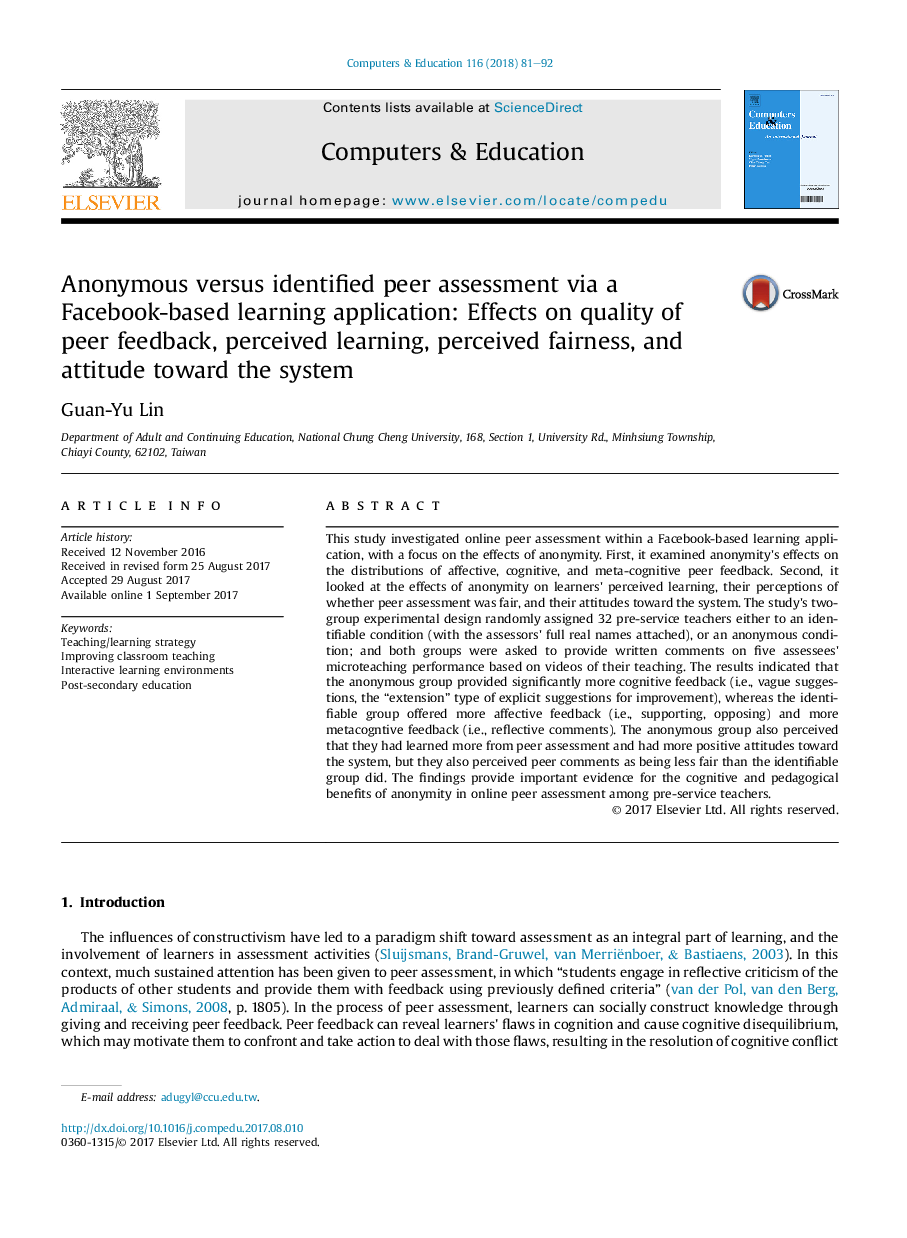| Article ID | Journal | Published Year | Pages | File Type |
|---|---|---|---|---|
| 4936773 | Computers & Education | 2018 | 12 Pages |
â¢The study examined the role of anonymity in online peer assessment.â¢Anonymity increased cognitive comments, but reduced affective comments.â¢A higher level of perceived learning was observed in the anonymous group.â¢The anonymous group had more positive attitude toward the system.â¢The anonymous group had a lower level of perception that peer assessment was fair.
This study investigated online peer assessment within a Facebook-based learning application, with a focus on the effects of anonymity. First, it examined anonymity's effects on the distributions of affective, cognitive, and meta-cognitive peer feedback. Second, it looked at the effects of anonymity on learners' perceived learning, their perceptions of whether peer assessment was fair, and their attitudes toward the system. The study's two-group experimental design randomly assigned 32 pre-service teachers either to an identifiable condition (with the assessors' full real names attached), or an anonymous condition; and both groups were asked to provide written comments on five assessees' microteaching performance based on videos of their teaching. The results indicated that the anonymous group provided significantly more cognitive feedback (i.e., vague suggestions, the “extension” type of explicit suggestions for improvement), whereas the identifiable group offered more affective feedback (i.e., supporting, opposing) and more metacogntive feedback (i.e., reflective comments). The anonymous group also perceived that they had learned more from peer assessment and had more positive attitudes toward the system, but they also perceived peer comments as being less fair than the identifiable group did. The findings provide important evidence for the cognitive and pedagogical benefits of anonymity in online peer assessment among pre-service teachers.
